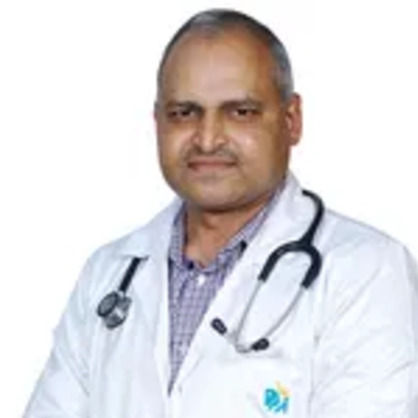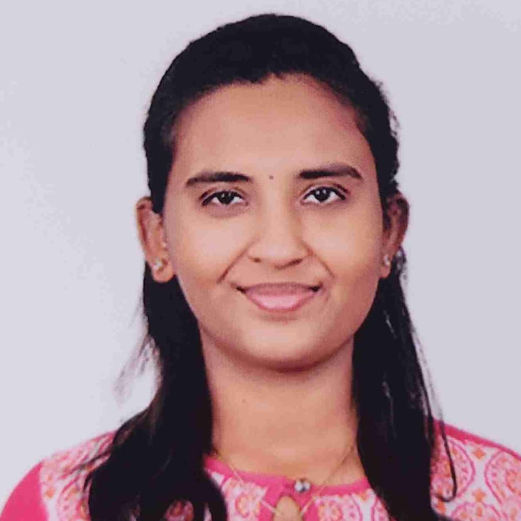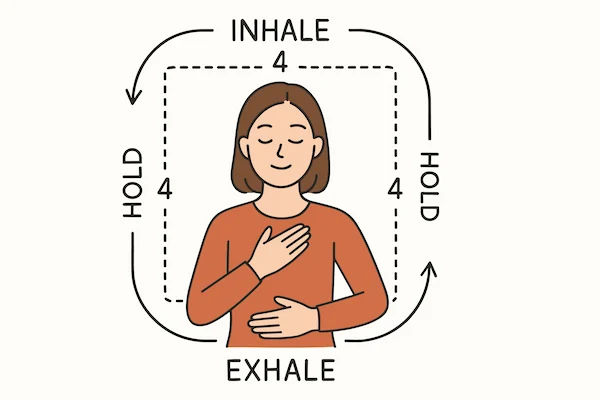Understanding Hyperventilation: Causes and Treatment
Learn about the causes, symptoms, and effective treatments for hyperventilation, including tips for managing episodes and when to seek medical help.

Written by Dr. Shaik Abdul Kalam
Reviewed by Dr. Mohammed Kamran MBBS, FIDM
Last updated on 20th Aug, 2025

Introduction
Hyperventilation is a condition where you breathe faster or deeper than normal, often leading to an imbalance of oxygen and carbon dioxide in your body. While it can be scary, especially if it happens suddenly, understanding its causes and treatments can help you manage it better.
What Is Hyperventilation?
Hyperventilation occurs when your breathing rate increases, causing you to exhale more carbon dioxide (CO₂) than your body produces. This lowers CO₂ levels in your blood, leading to symptoms like dizziness, tingling, and shortness of breath. It can happen due to stress, anxiety, or medical conditions.
Common Symptoms
Rapid or deep breathing
Feeling lightheaded or dizzy
Tingling or numbness in hands, feet, or lips
Chest tightness or pain
Shortness of breath
Heart palpitations
Anxiety or panic
Causes of Hyperventilation
Hyperventilation can be triggered by physical or emotional factors:
1. Anxiety or Panic Attacks: Stress and fear can cause rapid breathing.
2. Physical Overexertion: Intense exercise can sometimes lead to hyperventilation.
3. Medical Conditions: Asthma, lung diseases, or heart problems may contribute.
4. High Altitudes: Lower oxygen levels can make breathing faster.
5. Fever or Infections: Increased metabolic rate can affect breathing.
6. Pregnancy: Hormonal changes may alter breathing patterns.
How Hyperventilation Affects Your Health?
When you hyperventilate, your body loses too much CO₂, leading to respiratory alkalosis (a condition where blood becomes less acidic). This can cause:
Dizziness & Fainting: Due to reduced blood flow to the brain.
Muscle Spasms: Low CO₂ affects calcium levels, leading to cramps.
Increased Anxiety: Breathing difficulties can worsen panic.
Chest Pain: Overworked chest muscles may feel sore.
Consult Top Specialists for Personalised Tips
How to Manage Hyperventilation?
Here’s how you can manage hyperventilation:
1. Calm Your Breathing
Pursed-Lip Breathing: Inhale slowly through your nose, then exhale through pursed lips (like blowing out a candle).
Belly Breathing: Place a hand on your stomach, breathe deeply into your diaphragm (not just your chest).
Paper Bag Technique (Controversial): Some experts recommend breathing into a paper bag to re-inhale CO₂, but this should be done cautiously—only if you’re sure it’s hyperventilation and not a heart issue.
2. Reduce Stress & Anxiety
Practice relaxation techniques like meditation or yoga.
Engage in regular physical activity to manage stress.
Seek therapy or counseling if anxiety is a frequent trigger.
3. Lifestyle & Dietary Adjustments
Avoid Caffeine & Alcohol: They can worsen anxiety and breathing issues.
Stay Hydrated: Dehydration can affect breathing patterns.
Maintain a Balanced Diet: Low blood sugar can sometimes trigger hyperventilation.
4. Medical Treatment (If Needed)
If hyperventilation is due to an underlying condition (like asthma or heart disease), consult a doctor.
In severe cases, medications (anti-anxiety drugs or beta-blockers) may be prescribed.
When to See a Doctor?
Seek immediate medical help if:
You experience chest pain that spreads to your arm or jaw (could indicate a heart attack).
Your breathing doesn’t improve with relaxation techniques.
You have a history of lung or heart disease.
For recurring episodes, consider consulting a specialist to rule out underlying conditions.
Book a Consultation with Apollo 24|7
If you frequently experience hyperventilation or related symptoms, Apollo 24|7 offers expert consultations with pulmonologists and mental health professionals. You can easily schedule a test or appointment through their app or website.
Conclusion
Hyperventilation can be alarming, but understanding its causes and learning breathing techniques can help you regain control. If stress or anxiety is a trigger, lifestyle changes and relaxation methods can make a big difference. For persistent or severe cases, professional medical advice is essential.
Remember, you’re not alone—many people experience hyperventilation, and with the right approach, it can be managed effectively. Stay calm, breathe mindfully, and seek help when needed.
Consult Top Specialists
Consult Top Specialists for Personalised Tips

Dr. Mohamed Azeem
General Physician/ Internal Medicine Specialist
2 Years • MBBS,MD(Internal Medicine) CCEBDM
Karaikudi
Apollo Hospitals Karaikudi, Karaikudi

Dr. Swagata Sircar
General Physician/ Internal Medicine Specialist
8 Years • MBBS, MD General Medicine
Kolkata
HealthYou Speciality Clinic & Diagnostics., Kolkata
(50+ Patients)

Dr. Swarna Deepak K
General Physician/ Internal Medicine Specialist
17 Years • MBBS: MD (Internal Medicine) MRCP (UK), EDIC (European Diploma in Critical Care), IDCCM, IFCCM (Critical Care), FID (Royal Liverpool Academy)
Hyderabad
Apollo Hospitals Jubilee Hills, Hyderabad
(375+ Patients)

Dr. Dhanraj K
General Physician/ Internal Medicine Specialist
25 Years • MBBS, MD Internal Medicine - Osmania Medical College, Hyderabad
Hyderabad
Apollo Hospitals Jubilee Hills, Hyderabad
(375+ Patients)

Dr. Gunashree V L
General Physician/ Internal Medicine Specialist
3 Years • MBBS
Bengaluru
Apollo Clinic, JP nagar, Bengaluru
Consult Top Specialists

Dr. Mohamed Azeem
General Physician/ Internal Medicine Specialist
2 Years • MBBS,MD(Internal Medicine) CCEBDM
Karaikudi
Apollo Hospitals Karaikudi, Karaikudi

Dr. Swagata Sircar
General Physician/ Internal Medicine Specialist
8 Years • MBBS, MD General Medicine
Kolkata
HealthYou Speciality Clinic & Diagnostics., Kolkata
(50+ Patients)

Dr. Swarna Deepak K
General Physician/ Internal Medicine Specialist
17 Years • MBBS: MD (Internal Medicine) MRCP (UK), EDIC (European Diploma in Critical Care), IDCCM, IFCCM (Critical Care), FID (Royal Liverpool Academy)
Hyderabad
Apollo Hospitals Jubilee Hills, Hyderabad
(375+ Patients)

Dr. Dhanraj K
General Physician/ Internal Medicine Specialist
25 Years • MBBS, MD Internal Medicine - Osmania Medical College, Hyderabad
Hyderabad
Apollo Hospitals Jubilee Hills, Hyderabad
(375+ Patients)

Dr. Gunashree V L
General Physician/ Internal Medicine Specialist
3 Years • MBBS
Bengaluru
Apollo Clinic, JP nagar, Bengaluru




